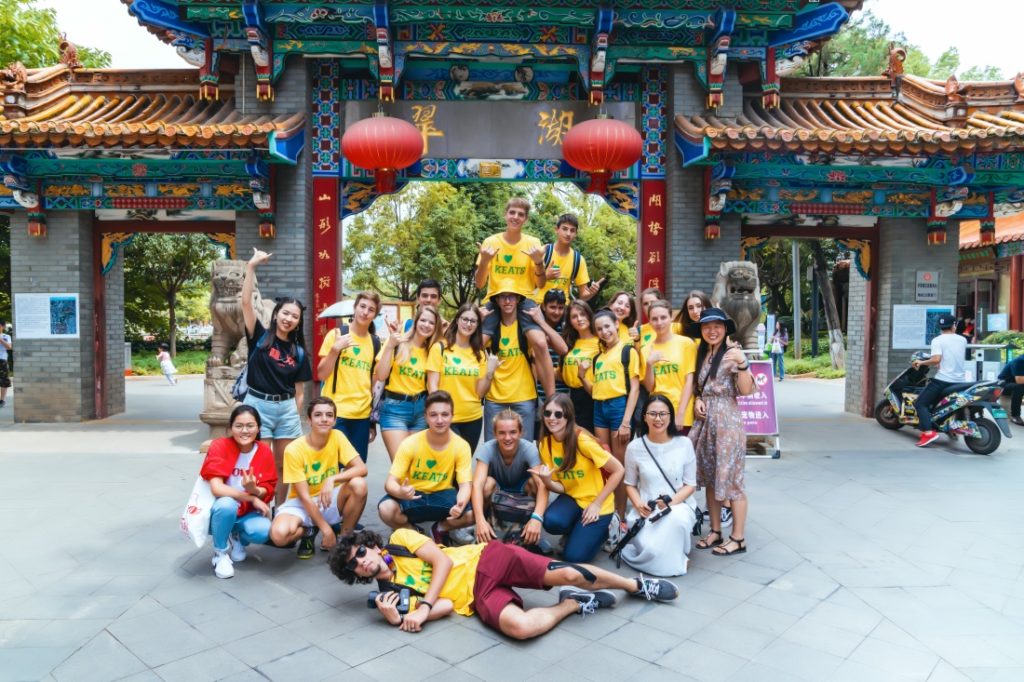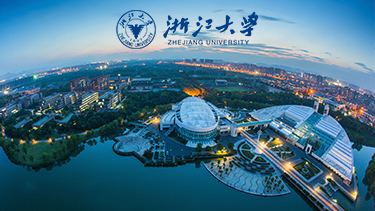Tuition fees for international students at Beijing University vary between ¥15,000 and ¥40,000 annually.
Table of Contents

Introduction
Beijing University, commonly referred to as Peking University (PKU), stands as one of China’s most prestigious and leading institutions for higher education. Founded in 1898, it has grown to become a hub for academic excellence, cutting-edge research, and cultural exchange. The university’s vibrant campus is nestled in the heart of Beijing, and it boasts a rich history intertwined with the development of modern China.
Brief Overview of Beijing University (Peking University)
Peking University’s legacy has always been one of innovation and reform. Being the first national university in China, it set the tone for modern education in the nation. The university is home to a diverse range of faculties, from humanities to sciences, reflecting its comprehensive academic foundation. Over the years, PKU has played a pivotal role in major intellectual movements in China, such as the May Fourth Movement. Today, it continues to uphold its reputation as a center for progressive thought and academic exploration. For more on its history and significance, you can refer to Peking University’s Wikipedia page.
Importance of International Education at Beijing University
Peking University’s commitment to global education is evident in its numerous international partnerships, student exchange programs, and globally-oriented curricula. Recognizing the value of diverse perspectives in academic discourse, PKU has made significant strides in fostering an inclusive and global academic community. Its doors are open to students from all corners of the world, ensuring a rich tapestry of cultures and ideas on campus. This commitment is not only about welcoming international students but also about sending its own students overseas to gain global exposure. To understand the depth of PKU’s international engagements, a visit to Peking University’s global initiatives on Wikipedia would provide valuable insights.
Tuition Fees Breakdown
Navigating the tuition fee structure at Peking University can be intricate, given the variety of programs and courses available. It’s important to understand the financial investment required for different academic pursuits. This section provides a general overview of the tuition fees for various programs, bearing in mind that specifics can fluctuate based on the department or course chosen.
Undergraduate Programs
Undergraduate programs at Peking University span a duration of typically 4 years, with some exceptions like medicine, which might extend longer. Here are some key points regarding the tuition fees for these programs:
- Humanities and Social Sciences: Approx. ¥25,000/year
- Science, Engineering, and Medicine: Approx. ¥30,000/year
- Business and Economics: Approx. ¥35,000/year
For a comprehensive list of undergraduate courses and their respective fees, Peking University’s official fee structure on Wikipedia provides detailed insights.
Postgraduate Programs
Peking University offers a vast array of Master’s programs that typically span 2-3 years. Here’s a glimpse of the fee structure for some popular disciplines:
- Arts and Humanities: Approx. ¥30,000/year
- Science and Engineering: Approx. ¥40,000/year
- MBA and related courses: Approx. ¥200,000 for the entire program
PhD Programs
Engaging in doctoral research at Peking University is a commitment of at least 3 years. Here are the tuition fee highlights:
- Humanities and Social Sciences: Approx. ¥35,000/year
- Technical and Scientific disciplines: Approx. ¥45,000/year
To explore the vast variety of PhD programs, a thorough read on Peking University’s official Wikipedia page can offer more insights.
Short-term and Language Courses
For those looking to immerse themselves in Chinese culture or pick up the Mandarin language, Peking University offers a selection of short-term courses. Here are the fee highlights:
- Basic Mandarin Language Course (3 months): Approx. ¥8,000
- Intensive Mandarin Language Course (6 months): Approx. ¥15,000
- Summer Program (1 month): Approx. ¥5,000

Factors Influencing Tuition Fees
Tuition fees, especially at esteemed institutions like Peking University, can vary based on a myriad of factors. These variations ensure that the fees reflect the actual costs and values associated with each program or course. Understanding these influencing factors can aid prospective students in making informed decisions regarding their academic pursuits and budgeting for their education.
Discipline and Specialty
Different academic disciplines often come with different costs attached:
- Science and Engineering: These disciplines usually involve high-end equipment, state-of-the-art labs, and costly materials. For instance, an engineering program that necessitates cutting-edge machinery might have a yearly cost of around ¥40,000, primarily due to the high-quality materials and tools required.
- Arts and Humanities: Typically, these programs have fewer additional costs. A literature or history major, which largely relies on libraries and lectures, might be priced at about ¥25,000/year. However, specialty courses like fine arts, which require specific materials, might have slightly elevated costs.
- Business and Management: Programs like the MBA, which often incorporate international trips, guest lectures from global industry leaders, and case studies, might come at a premium. An MBA program could cost around ¥200,000 for the entire course.
Duration of Study
The length of a course plays a pivotal role in determining its overall cost:
- Short-term Courses: A 3-month Mandarin language immersion program might cost around ¥8,000, equating to approximately ¥2,667/month.
- Long-term Programs: A 4-year undergraduate degree in the humanities might cost around ¥100,000 in total, averaging ¥25,000/year.
It’s essential to consider both the yearly fee and the total cost over the entire duration to make accurate financial projections.
Lab and Equipment Fees (if applicable)
Courses that necessitate specific labs, equipment, or materials often carry additional charges:
- Lab Fees: Science courses that require lab work might have an additional fee of around ¥5,000/year to cover the cost of chemicals, lab wear, and equipment usage.
- Equipment Fees: Courses like film studies, which require high-quality cameras, editing software, and other specialized gear, might levy a charge of around ¥10,000/year.
- Material Costs: Programs like architecture or design, where students need to produce models or prototypes, might have material costs amounting to about ¥3,000/year.
Comparison with Other Chinese Universities
Choosing a university in China is a significant decision, with many top-tier institutions vying for attention. Peking University stands tall among them, but how does it compare in terms of tuition fees with other leading Chinese universities? Let’s delve into a comparative analysis to understand the financial landscape better.
Tsinghua University
Located in Beijing, like Peking University, Tsinghua University is often hailed as one of the top universities in China.
- Undergraduate Programs: Tuition fees for humanities and social sciences hover around ¥28,000/year. For science and engineering programs, the cost is approximately ¥32,000/year.
- Postgraduate Programs: A Master’s program in engineering might cost about ¥40,000/year, while humanities can be around ¥30,000/year.
- Advantages: Known for its rigorous engineering and architecture programs, Tsinghua often has state-of-the-art labs and facilities.
- Drawbacks: Given its reputation, the competitive nature can be intense, potentially leading to a high-pressure environment for some students.
Fudan University
Situated in Shanghai, Fudan University boasts a rich history and a strong academic tradition.
- Undergraduate Programs: Humanities courses come at about ¥24,000/year, while science and engineering programs might be priced around ¥29,000/year.
- Postgraduate Programs: An MBA from Fudan might set students back by ¥220,000 for the entire duration.
- Advantages: Fudan is renowned for its business, humanities, and social science departments, providing a balanced blend of theoretical and practical knowledge.
- Drawbacks: Living costs in Shanghai can be higher, impacting the overall budget for international students.
Zhejiang University
Located in Hangzhou, Zhejiang University is a comprehensive institution known for its innovation.
- Undergraduate Programs: Students can expect to pay around ¥23,000/year for arts and humanities and about ¥27,000/year for science and engineering.
- Postgraduate Programs: A Master’s in business or management can cost approximately ¥35,000/year.
- Advantages: Zhejiang University is recognized for its strides in research, particularly in the fields of engineering and technology.
- Drawbacks: The campus is expansive, which might be a bit overwhelming for new students not used to large university settings.

Scholarships and Financial Aid for International Students
Securing a spot at Peking University or any other top Chinese institution is a commendable achievement. However, the financial aspect can sometimes be daunting. Fortunately, several scholarships and financial aids are available to international students to lessen the burden. Let’s explore the primary avenues of financial support available.
Beijing University Scholarships
Peking University offers several scholarship programs specifically tailored for international students:
- Peking University International Student Scholarship: This scholarship can cover up to 100% of tuition fees, depending on the student’s academic merit and financial need. On average, around 40% of international students receive some form of this scholarship.
- Peking University Excellence Scholarship: Awarded to top-performing international students, this scholarship can provide a monthly stipend of ¥2,000 along with a full tuition waiver.
- Advantages: These scholarships can significantly reduce or even eliminate tuition fees, making Peking University a viable option for many international students.
- Drawbacks: Given the competitive nature of these scholarships, students need to maintain a high academic standard to either secure or retain them.
More detailed information is available on the Peking University official page.
Chinese Government Scholarships
The Chinese government offers a slew of scholarships to attract talented international students:
- Chinese Scholarship Council (CSC) Scholarship: This comprehensive scholarship can cover tuition, accommodation, and even provide a monthly stipend. The exact value can range from ¥20,000 to ¥30,000 annually.
- Bilateral Program Scholarships: These are agreements between the Chinese government and governments of other countries, offering full or partial scholarships.
- Advantages: These scholarships offer a wide coverage, including tuition, accommodation, and sometimes even living expenses.
- Drawbacks: As they are available to all international students in China, the competition is fierce.
Details about these scholarships are available on the Chinese Scholarship Council’s official page on Wikipedia.
External Scholarships and Grants
Apart from university and government scholarships, numerous external organizations offer financial support:
- Confucius Institute Scholarship: Specifically designed for those seeking to study Chinese language and culture, this scholarship can cover tuition, accommodation, and offer a monthly stipend.
- Asian Future Leaders Scholarship Program: Aimed at students from Asian countries, this program can provide up to ¥50,000 annually based on merit and leadership potential.

Cost of Living in Beijing for International Students
Beijing, as the capital city of China, not only offers a wealth of cultural and historical experiences but also presents a blend of modernity with tradition. However, the bustling metropolis comes with its own set of financial considerations, especially for international students who need to budget for more than just tuition fees. This section sheds light on the primary living expenses they can expect to encounter.
Accommodation Costs
Finding a comfortable place to stay is paramount, but it’s also one of the major costs to consider:
- University Dormitories: Peking University and other institutions often provide on-campus housing. A shared dorm room might cost anywhere between ¥15,000 to ¥25,000 annually. Single rooms, with more amenities, can range from ¥30,000 to ¥40,000 a year.
- Private Apartments: Renting an apartment outside the campus can be pricier, especially in popular areas. A one-bedroom apartment in the city center can cost around ¥7,000 to ¥9,000 per month. Opting for suburban areas can reduce this to ¥4,500 to ¥6,500 monthly.
- Advantages: Staying on-campus provides a sense of community and often includes utilities in the rent.
- Drawbacks: Private apartments offer more privacy but come with added costs like utilities and possibly longer commutes.
Food and Transportation
- Food: Local meals at campus canteens or nearby eateries can cost between ¥15 to ¥40 per meal. Western restaurants are pricier, with meals ranging from ¥50 to ¥150.
- Transportation: The Beijing Subway is a popular mode of transportation, with a one-way ticket costing around ¥3 to ¥6 based on distance. Monthly transportation cards, which include buses and trams, are available for about ¥200.
- Advantages: With a plethora of food options, students can enjoy both local delicacies and international cuisines without breaking the bank. Beijing’s public transportation is efficient and expansive.
- Drawbacks: Regular dining at upscale restaurants or frequent taxi rides can quickly inflate monthly expenses.
Other Living Expenses
Beyond the basics, there are other costs to consider:
- Mobile and Internet: A monthly package with a reasonable data limit and local calling might be around ¥100. High-speed internet for an apartment can be ¥150 to ¥250 per month.
- Entertainment: Going to the movies can cost ¥60 to ¥100 for a ticket. Visiting historical sites, like the Forbidden City, might have an entry fee of ¥60.
- Healthcare: While international students often have health insurance, out-of-pocket expenses for medicines or non-covered services can range.
- Advantages: Beijing offers a myriad of free or low-cost recreational activities, like parks and local festivals.
- Drawbacks: Imported goods, international brands, and frequent nights out can raise the monthly budget significantly.

